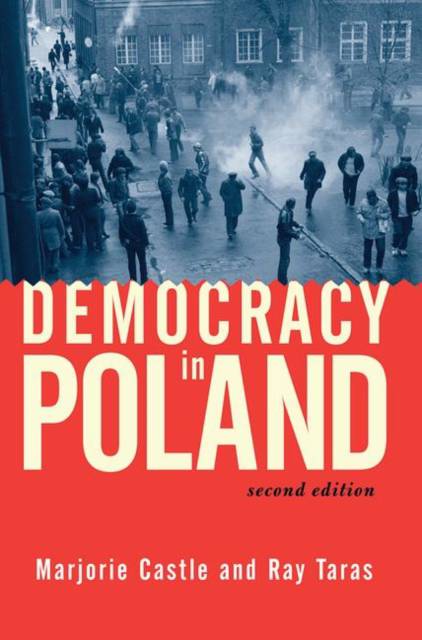
- Afhalen na 1 uur in een winkel met voorraad
- Gratis thuislevering in België vanaf € 30
- Ruim aanbod met 7 miljoen producten
- Afhalen na 1 uur in een winkel met voorraad
- Gratis thuislevering in België vanaf € 30
- Ruim aanbod met 7 miljoen producten
Zoeken
€ 274,95
+ 549 punten
Uitvoering
Omschrijving
Ever-changing election rules, a highly fluid party system, a constitution considered illegitimate by more than one major political actor, polarized political elites, and a system of corruption that has grown up together with the young democracy itself -these characterize contemporary Polish politics. At the same time Poland is frequently identified as the most successful example of a transition from communism to capitalism, having led this series of world-changing transitions. It has distanced itself from a turbulent history as pawn in Eastern Europe's international politics to become a leading candidate for membership in the exclusive European Union club. As Polish democratic politics evolves it is taking unexpected forms and producing equally unexpected results.Through a comprehensive analysis of politics in this young European democracy, Marjorie Castle and Ray Taras explain the complexity and uncertainty of political processes and outcomes in Poland. Poland'spast -the flawed Second Republic established after World War I, as well as the imperfect independence in the Soviet shadow following World War II's devastation - dramatizes the unique historic opportunity it was given in 1989 to determine its own political future and perhaps eventually become a major European power. Choices made in 1989 and thereafter would not only construct a new democracy but shape and limit its possibilities. The primary focus here is on contemporary politics: what the fundamental political cleavages are, whether parties adequately represent popular interests, who the political elites are and what games they play, whatinfluence the Catholic Church still holds in an aspiring Western-style secular republic, and what policy challenges face Poland in the future. Inimitable political leaders, changing political arenas, and complexpolicy-making processes come to life through a fascinating narrative characterized by an insider's insight.
Specificaties
Betrokkenen
- Auteur(s):
- Uitgeverij:
Inhoud
- Aantal bladzijden:
- 312
- Taal:
- Engels
Eigenschappen
- Productcode (EAN):
- 9780367096717
- Verschijningsdatum:
- 13/06/2019
- Uitvoering:
- Hardcover
- Formaat:
- Genaaid
- Afmetingen:
- 152 mm x 229 mm
- Gewicht:
- 585 g

Alleen bij Standaard Boekhandel
+ 549 punten op je klantenkaart van Standaard Boekhandel
Beoordelingen
We publiceren alleen reviews die voldoen aan de voorwaarden voor reviews. Bekijk onze voorwaarden voor reviews.











